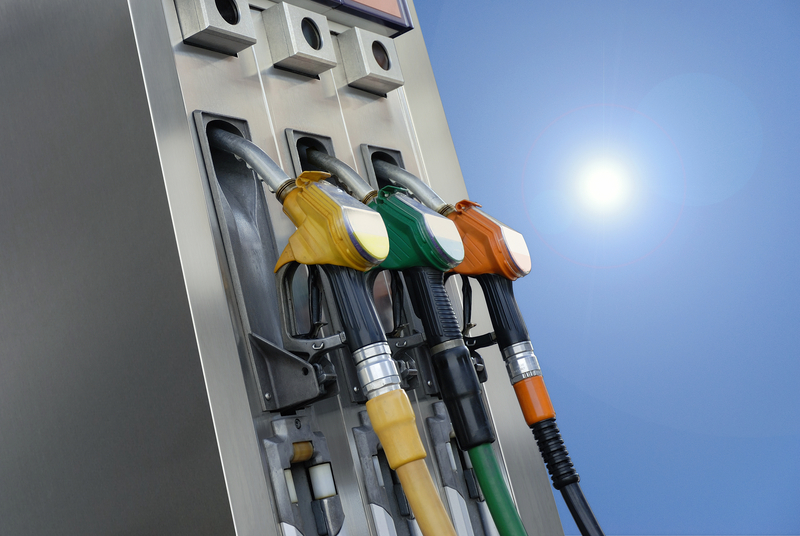In 2021, E10 petrol became the standard grade in the UK. But what is E10 petrol? How does it differ from E5, and which is the best to use in your fleet?
In this post we’ll outline the key differences between E5 and E10 fuel, to help you decide which is the right choice for your fleet.
At Anthony Jones, we specialise in helping fleets save money with tailored insurance packages and strategic risk management. To find out how we can help you, call us on 020 8290 9099 or email commercial.motor@anthonyjones.com.
What is E10 Petrol?
The “E” in E10 petrol stands for ethanol. E10 petrol contains 10% ethanol. As there is less fossil fuel in the mix, vehicles running on E10 petrol will produce lower carbon emissions than vehicles running on pure petrol.
The higher concentration of ethanol in the mix also means that E10 petrol tends to cost less than other fuels.
What is E5 Petrol?
As you might have guessed, E5 petrol only contains 5% ethanol. It’s sometimes referred to as “high-octane” petrol, ‘super’ or performance fuel. It will produce higher emissions than E10 petrol, and it will usually cost more. However, using E5 petrol may improve the performance of vehicles in your fleet. In the long-term, it could even help you save money on service and maintenance costs.
E5 vs. E10 – Which is Best For My Fleet?
Let’s look at the pros and cons of E5 and E10, to help you decide which is the right choice for you.
Using E10 Petrol For Fleets
The Pros
- It’s cheaper. If you’re looking to save money on your fleet fuel costs, switching to E10 could make a difference. The savings could appear marginal at first. But over time they could add up.
- It’s greener. According to the Department of Transport, introducing E10 to UK forecourts could cut CO2 emissions by 750,000 tonnes a year. This is the equivalent of taking 350,000 cars off the road. With this in mind, switching to E5 petrol could help you work towards your CSR goals.
The Cons
- It’s less efficient. E10 petrol can reduce your vehicles’ fuel economy. The government claims that you may see a reduction of around 1%, “but it’s unlikely to be noticeable in everyday driving”. But of course, for a fleet of vehicles, a 1% reduction to your fuel economy could really cost you in the long-term.
- Your vehicles may not be compatible. Older vehicles may not run on E10. According to the government, all cars built since 2011 are compatible. But if you have any older vehicles in your fleet, you may have to keep using higher grades.
- E10 could damage your engine over time. Ethanol absorbs water from the air. If a car’s got too much ethanol in its system, and it’s not driven for a long period, this moisture could lead to rusting, along with damage to the fuel tank and injectors. Of course, fleet vehicles are unlikely to go unused for too long. But this is still something to consider.
Using E5 Petrol for Fleets
The Pros
- It’s more efficient. When burned, ethanol doesn’t produce as much energy as pure petrol. You’ll get a much better fuel economy with E5 petrol, which could offset the higher fuel costs.
- Your engines may run better. Engines may run more smoothly on E5 than on E10. There may be less chance of engine knocking, which could help you save money on maintenance and saving costs in the long-term.
- It’s more flexible. As we mentioned above, some older cars will not run on E10 petrol. But all petrol vehicles will run on E5 petrol.
The Cons
- It’s more expensive. You may save money over time on servicing, and you may get more miles per gallon with E5 petrol. But it cannot be denied that the amount you pay at pump will be considerably higher if you choose E5 over E10.
- It may become increasingly rare. Because it’s not as green as E10 petrol, the UK government will likely phase out E5 petrol in the coming years. If you routinely replace the vehicles in your fleet with newer models, this might not be an issue. But if you have a lot of older vehicles in your fleet with no plans to upgrade them, then you may find it increasingly difficult to find adequate fuel.
Get The Best For Your Fleet
Steve Blackmore, Director says:
“Thinking about your fuel economy is one way to save money for your fleet. Another way is to take a serious look at your risk management, and your commercial motor insurance provision.
“Take the time to address the specific risks you’re facing, and you can make considerable savings on the cost of cover.
“Working with an insurance broker can also make a huge difference. At Anthony Jones, we can help you ensure you get the cover you need at the right price, with no risks of underinsurance, and no risks that you’ll pay too much for cover you don’t need.”
To find out how we can help you and your fleet, call our specialist commercial motor insurance team on 020 8290 9099 or email commercial.motor@anthonyjones.com.


